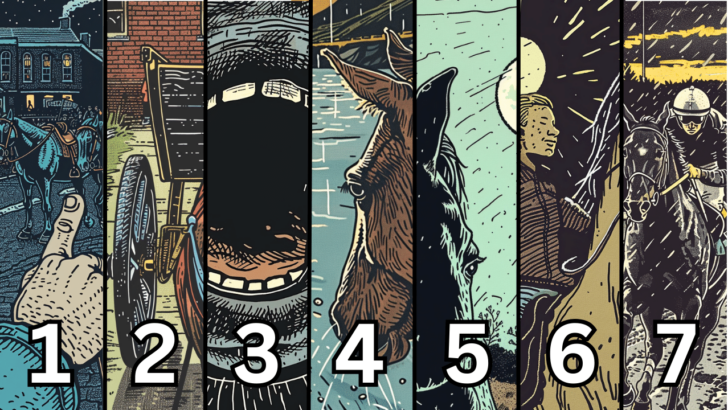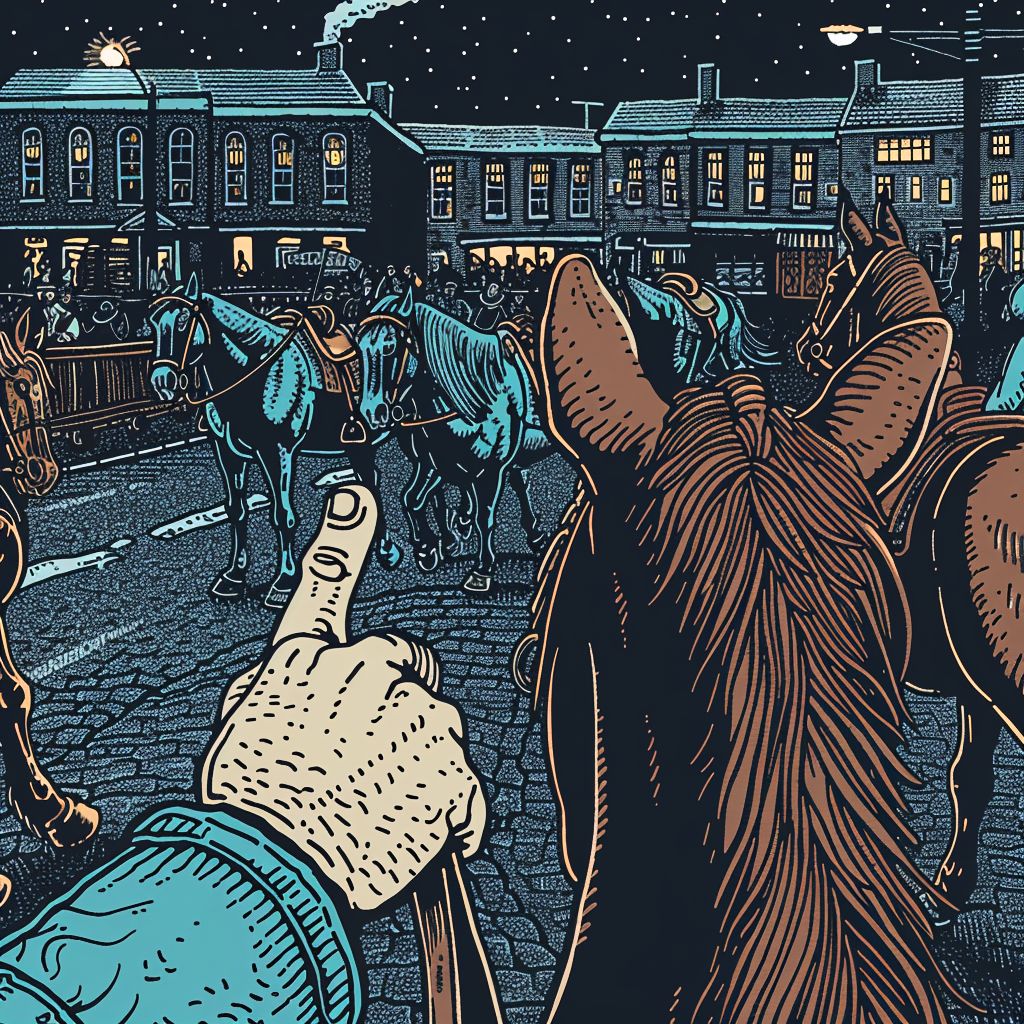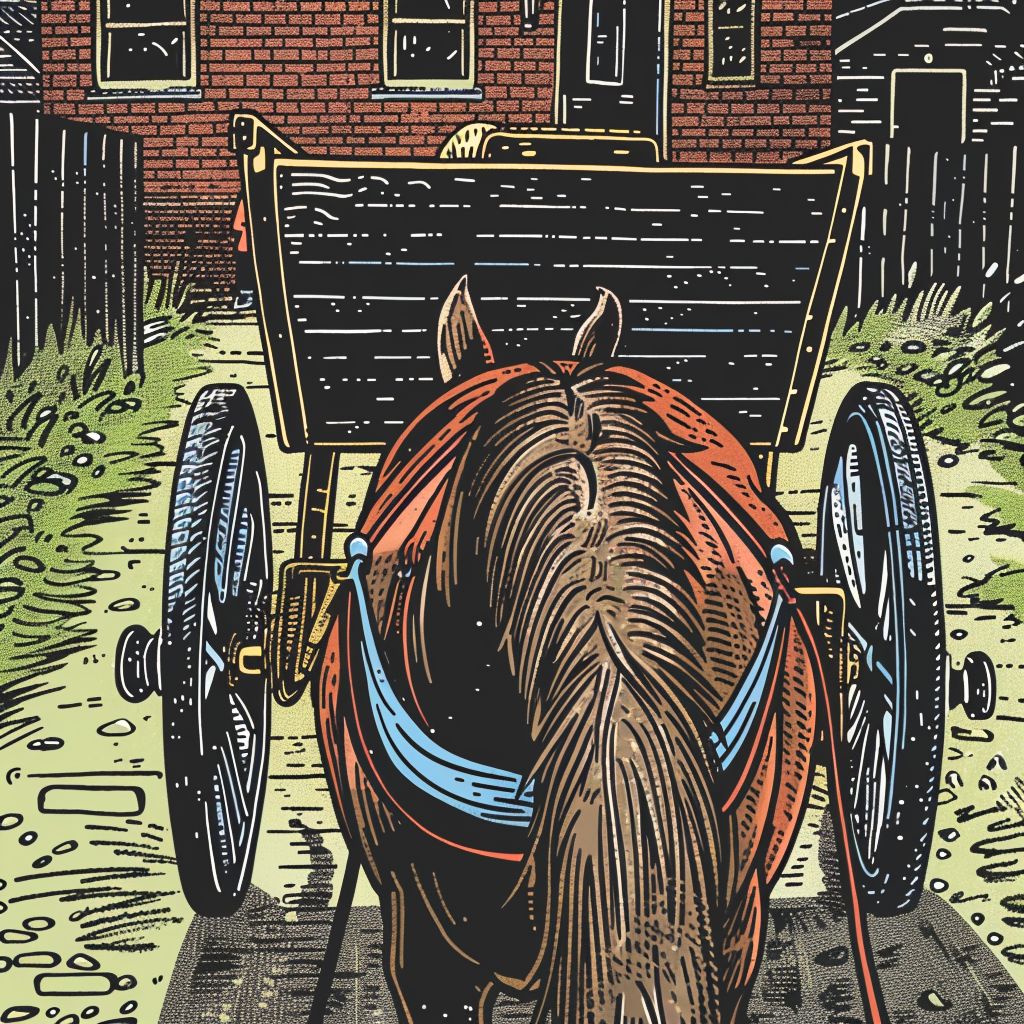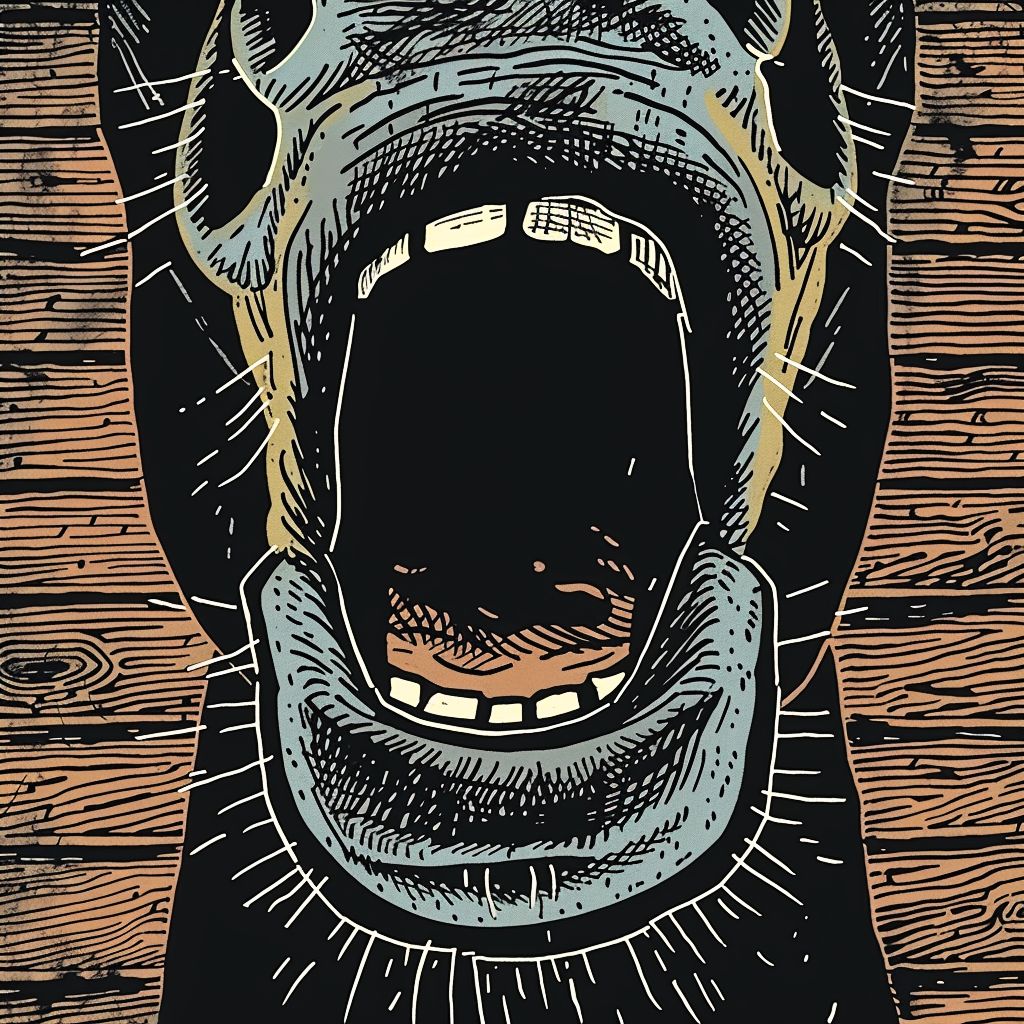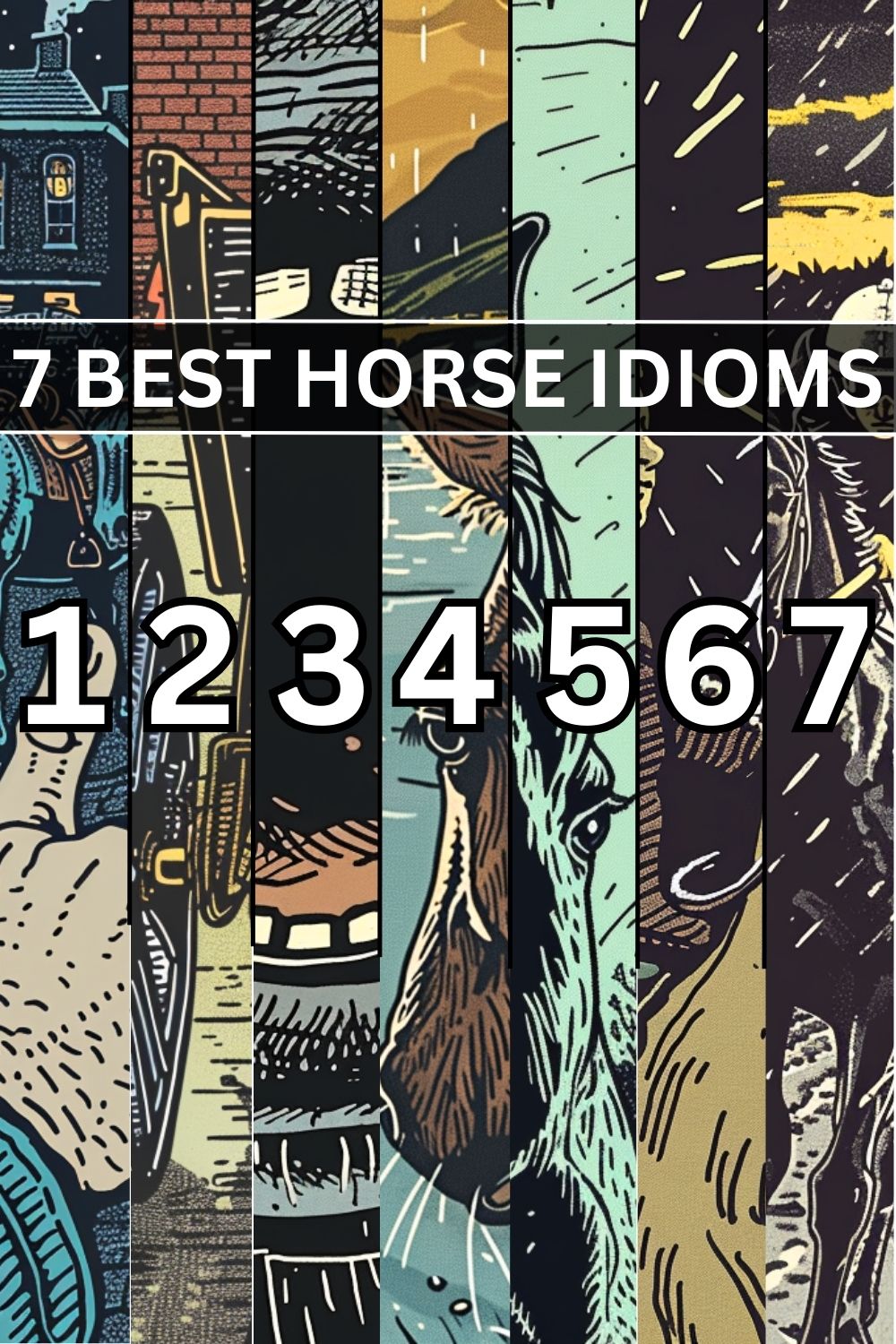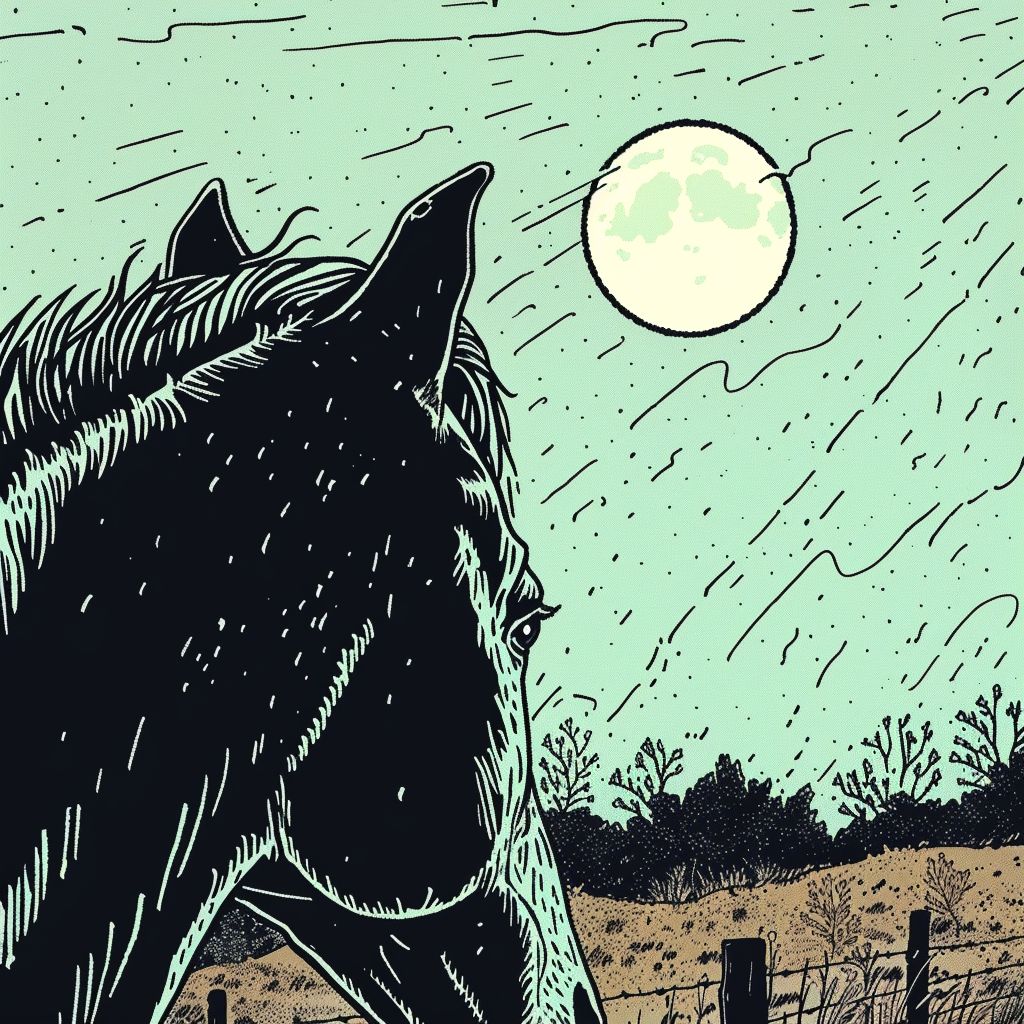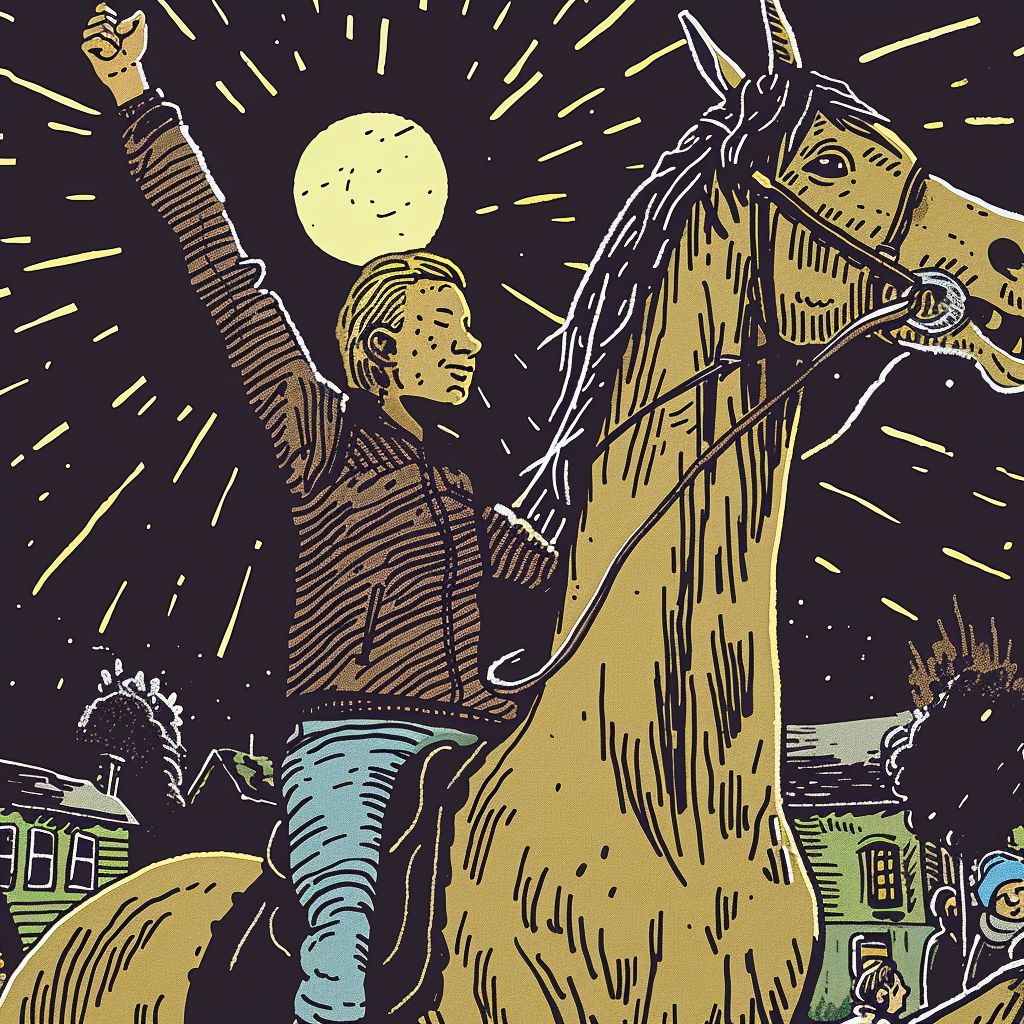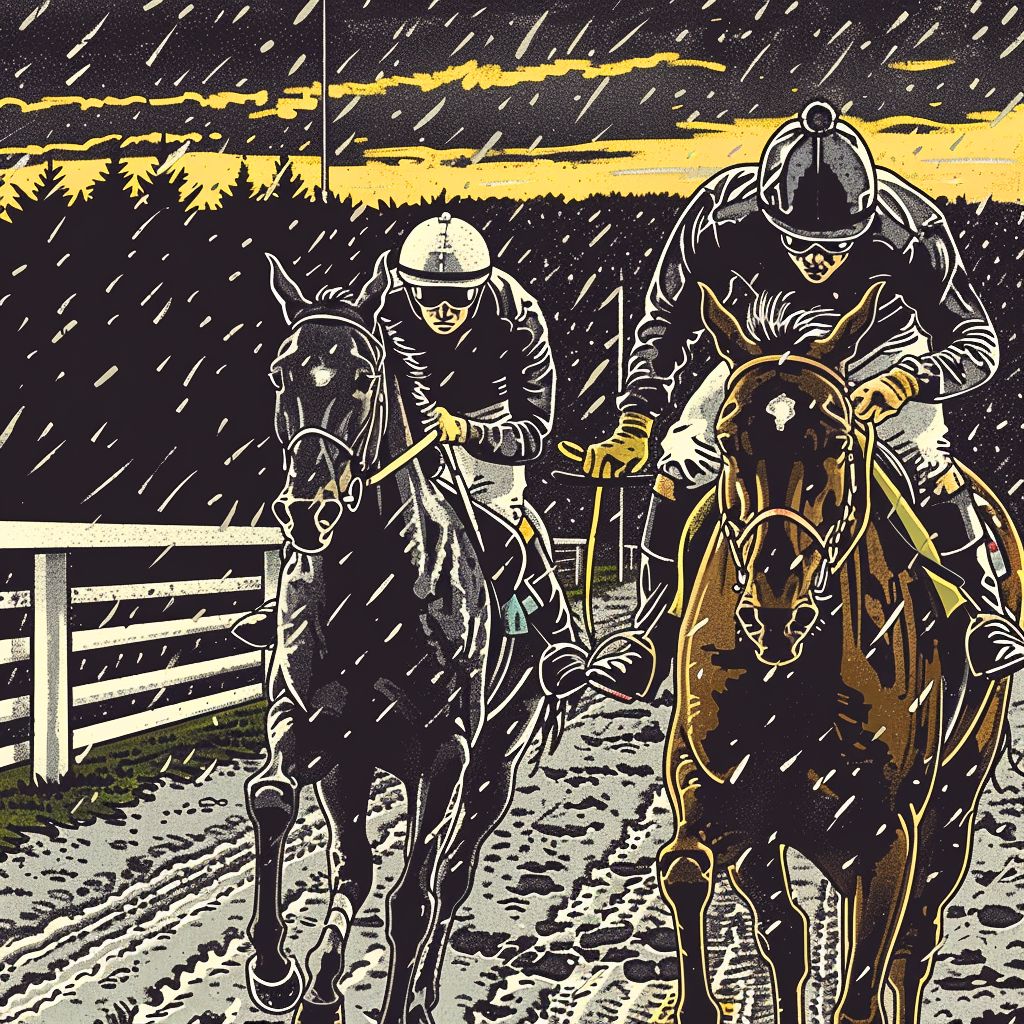Horses have galloped through the world’s languages, leaving hoofprints all over our daily conversations.
These majestic creatures, symbolizing freedom, strength, and speed, also lend their imagery to some of the most colorful idioms in the English language.
Whether holding your horses or changing them midstream, these expressions vividly depict life’s many races.
Saddle up as we trot through seven horse idioms you absolutely need to know—no horsing around!
1. Hold Your Horses
When someone tells you to “hold your horses,” they’re not expecting you to grasp a couple of reins physically; instead, they ask you to pause, be patient, or wait up.
Originating from a time when horses were the main mode of transportation, this idiom is now a universal signal to slow down.
Next time you’re eager to dash, remember that sometimes it pays to keep those horses firmly in check.
- Example 1: As the kids rushed towards the car screaming about going to the amusement park, their dad said, “Hold your horses! We can’t leave until your sister is ready too.”
- Example 2: When I tried to open my birthday present early, my mom laughed and said, “Hold your horses! Wait until everyone arrives.”
2. Put the Cart before the Horse
Trying to do something without following the right steps is like “putting the cart before the horse.”
Imagine trying to make a cart move by placing it in front of the horse that’s supposed to pull it—it just doesn’t work.
This idiom is a fun way to say that there’s a natural order to doing things, and when we ignore that order, we end up in a mess.
It’s a nudge to remind us to slow down, plan properly, and not skip ahead of the steps that lead to success.
Whether you’re tackling a project, planning an event, or jumping into a new venture, remember not to get ahead of yourself.
If you keep the horse in front, you’ll likely get to where you want to be much more smoothly.
- Example 1: She was so excited about decorating her new home that she bought all the furniture before measuring the rooms, totally putting the cart before the horse. Now, she’s got a couch that won’t fit through the front door.
- Example 2: He started inviting guests to his wedding before setting a date or even proposing to his girlfriend, which was really putting the cart before the horse. He had to scramble to make sure he had a venue and, more importantly, a fiancée.
3. Don’t Look a Gift Horse in the Mouth
This idiom comes with a lesson in gratitude. To “look a gift horse in the mouth” would be to inspect its teeth, which can tell you the horse’s age and health—a common practice when buying one.
However, if the horse is a gift, such scrutiny would be considered rude, suggesting you’re questioning the value of the present.
Thus, this saying advises us to accept gifts with grace without overly scrutinizing them. After all, it’s the thought that counts.
- Example 1: My grandmother always says, “Don’t look a gift horse in the mouth,” whenever I question the practicality of her gifts.
- Example 2: He received a free ticket to the concert from his friend and remembered it’s bad manners to look a gift horse in the mouth, so he gratefully accepted it without complaints.
4. Change Horses in Midstream
Decisions, decisions. They say it’s best not to “change horses in midstream”—advising against altering plans or leaders in the midst of critical action.
This idiom warns of the risks and disruptions of attempting to shift direction or strategy when you’re already halfway through.
Whether you’re in the literal middle of a river or metaphorically navigating the currents of a project, stick with your horse until you’re safely across.
- Example 1: Halfway through the project, the team leader wanted to change the software they were using, but the manager advised against changing horses in midstream.
- Example 2: She thought about switching her major in her third year but decided it was best not to change horses in midstream and stuck with economics.
5. A Dark Horse
Surprises come in all shapes and sizes, and sometimes they come in the form of a “dark horse.”
This idiom describes an unexpected winner or someone who emerges to prominence from obscurity, defying expectations.
Originally from the racing world, where a less-known horse might surprise spectators by winning a race, it now refers to any underdog who makes a surprising win or success.
Being or betting on a dark horse can lead to unexpected and thrilling victories in politics, sports, or daily life.
- Example 1: He was considered a dark horse in the competition, but he surprised everyone by winning the championship.
- Example 2: The indie film turned out to be a dark horse during the awards season, picking up several major prizes despite its low budget.
6. Get off your High Horse
7. Back the Wrong Horse
To “back the wrong horse” is to support a cause or a person that is ultimately unsuccessful.
Originating from the world of horse racing, where choosing which horse to bet on is critical, this idiom has galloped into everyday language to describe misplacing one’s support or trust.
It serves as a cautionary reminder to carefully consider our choices because backing the wrong horse can lead to disappointment and loss.
Whether in business, personal decisions, or even sports, it’s all about picking the winner—not the one that comes in last.
- Example 1: I really backed the wrong horse by investing all my savings in that startup just before it went under.
- Example 2: By supporting the candidate who lost the election, it felt like I had backed the wrong horse.

Hey fellow Linguaholics! It’s me, Marcel. I am the proud owner of linguaholic.com. Languages have always been my passion and I have studied Linguistics, Computational Linguistics and Sinology at the University of Zurich. It is my utmost pleasure to share with all of you guys what I know about languages and linguistics in general.

